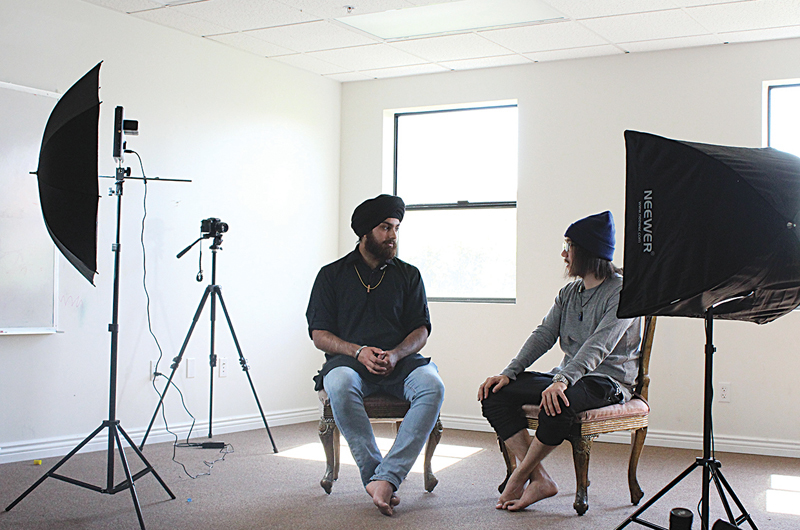
Two years after its launch, NBC Asian America is set to start a series spotlighting the spiritual journeys of young Asian American artists.
The series, called "Beyond Belief,' takes a look into the creative and spiritual spaces of five different artists from different artistic and spiritual backgrounds, including Christian DJ and producer Mark Redito; Sikh violinist Raaginder "Violinder"; spoken word artist and "Good Muslim Bad Muslim' podcast host Tanzila "Taz" Ahmed; Buddhist slam poet G Yamazawa; Catholic singer and songwriter Jenyi Lee; and agnostic comedian Teresa Lee.
"Whether you're interested in culture, whether you're interested in religion, whether you're interested in Asian America, it all kind of comes together in this series," said Jason Chu, the producer and host of Beyond Belief. "We're in touch with all of those issues because they're pertinent to us."
Chu, who himself is a Christian hip hop artist, and Yohan Yoon, the director of the series, said that Beyond Belief sprung out of their own experiences with religion, as well as those of their peers.
"Beyond Belief is like a conversation that we've been having with ourselves, and with each other for months, for years. It's our journey as well," said Yoon.
Both Chu and Yoon, who are in their mid- to late-twenties, said they've experienced phases of disillusionment in institutionalized religion, and found that many around them were going through the same doubts. Though both identify as Christian, they realized that sometimes the way they were expected to live out or practice Christianity felt forced or inauthentic to them. And the same was experienced by many of the artists they've spoken with.

Raaginder 'Violinder' (left) and Jason Chu (right) during one of the Beyond Belief shootings.
"Millennials aren't moving away from religion," said Chu. "They're moving towards authenticity."
Music and the arts have helped these young artists move towards a practice of religion that is genuine to them, Chu explained. For instance, though Raaginder grew up learning about and practicing Sikhism with his family, he said music was one of the catalysts that allowed him to deepen his faith.
"It made me understand the emotion of the scriptures, and what the gurus were trying to convey. It's easier to understand things when it's portrayed through music. That's how I connected to it," said Raaginder.
"We found that the arts really matter," explained Chu. "What we discovered was that a significant reason that many young people found their way back into religion is because their artistry provided them with an outlet to stay flexible with their spirituality when religion might have felt stifling to them."
Through stories like that of Raaginder's, Chu and Yoon hope to shed light on how young people today express and connect with their respective religions. And as Christians themselves, they also hope to challenge the Christian audience to think creatively about engaging with young people.
"There is a model of evangelism that's very conversion-based," Chu said. "It wasn't wrong for its time, but it's not necessarily helpful now. We're not saying, "Hey, don't go out and pray for people. Don't go out and share Christianity with people.' But my challenge to myself is, in 2016, what does it mean to share Christianity? We shouldn't stop sharing, but what does sharing mean today?"
Yoon added that he hopes the series would break down negative stereotypes of each religion.
"We want to dispel the notion of radicalism that gets tied to religion. There are a lot of stereotypes, and there's a lot of hate, a lot of divide, a lot of walls," said Yoon. "So we want to create bridges. Bridges between art and religion, between religions, between the audience and the artists, and show how all of these things intersect and come together."
Beyond Belief will come in a series of six- to eight-minute clips, and can be viewed online at NBCnews.com and the NBC Asian America Facebook page each Thursday starting October 6 until November 3.


















